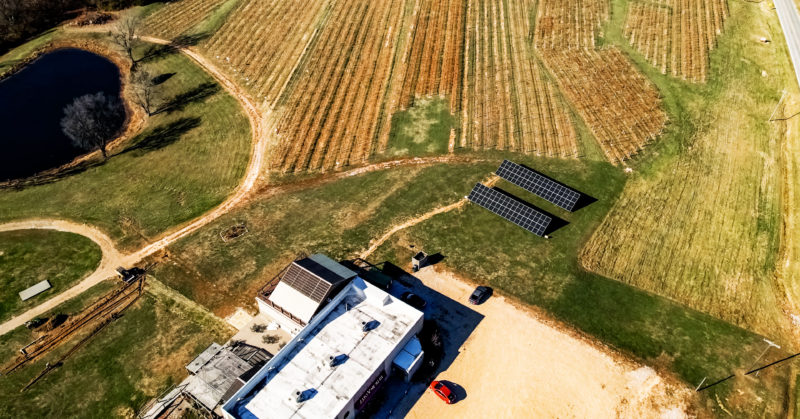Illinois farmers and rural small businesses are eligible for a grant program that makes going solar a “no-brainer”. The Rural Energy for America Program (REAP) is managed by USDA Rural Development, and it provides grants and loans for solar and other renewable energy projects for rural small businesses and agricultural producers. Learn more about the REAP Grant, including Illinois success stories below!
In addition to the REAP Grant, there are other state and federal incentives that make solar affordable and accessible for everyone. State Renewable Energy Credits (RECs) are available for most projects and provide 20 to 40% of a project’s costs. The federal solar energy tax credit is a 30% tax credit that can be claimed on federal income taxes for the cost of a solar system.
REAP Grant Facts and Quick Links
- REAP Grant Website
- Projects must be located in rural areas with populations of 50,000 residents or less
- For purposes of the grant, “agricultural producers” are defined as an entity directly engaged in production of agricultural products where at least 50 percent of their gross income coming from agricultural operations.”
- 2025 REAP Grant submission deadline: March 31, 2025.
- A list of grant writers that USDA Rural Development maintains is available upon request from Callie Heidbreder, callie.heidbreder@usda.gov
REAP Grant Success Stories!
In the second half of 2023 alone, over 200 Illinois farms and rural small businesses received the REAP grant for renewable energy projects.
Alto Vineyards, the oldest winery in Illinois, is run by three generations of the Renzaglia family. They were awarded $40,992 from a REAP grant to provide solar energy to their 5,000 square foot wine tasting room. State incentives and federal tax credits paid for the remainder of the project.
“I think going solar has been one of the best things we’ve done in years. In addition to federal money, Illinois has the best incentives in the country. It’s a no-brainer. Any small business owner absolutely must look into this.”
-Karen Renzaglia, Owner of Alto Vineyards

Teal Veterinary Service, Inc. is owned and operated by Dr. James Teal. He provides care for dogs and cats at this location, where he has been for 16 years. After seeing his electricity bill double in one year, he made the decision to install solar panels on his roof. He received $24,566 from the REAP grant to help pay for the solar panels.
“I am producing enough power for my use, plus putting some back on the grid. It’s nice not to have that $600 a month power bill. With the reduction of utility cost we added a new ultrasound machine. With inflation at such a high level, any savings in utilities are welcome.”
-Dr. Teal, Owner Teal Veterinary Service
Big John Grocery is owned by Dan Doughty since 1985. A REAP grant of more than half a million dollars allowed Doughty to install 1,900 solar panels to power his 18,000 square foot building. He was previously spending $115,000 a year on electricity bills. Trying to survive as a family-owned grocery store in the era of big box stores, he can now reinvest in his business. Big John is located in coal country in southern Illinois, where many residents are low income and receive food stamps. The store is perhaps most recognizable for its 50-foot-tall statue of John Henry, the steel-driving folk hero and the store’s namesake.
“It will help me immensely. On a sunny day, the solar panels crank up to 1,800 kilowatts. They tell me that’s excellent. I’ve not used any power from the power lines. I’m 100% self-sufficient on solar. I can utilize the savings to upgrade my frozen food equipment. It’s a lifesaver. I’ve got an Aldi store, a Kroger store, Dollar Store, and a Walmart within 10 miles of me. My customers have other places they can spend their money, but thankfully they keep coming back to my store.”
-Dan Doughty, Owner Big John Grocery







